Bachelor of
Health Sciences
Entry requirements
Key information
VIEWING DOMESTIC
VIEWING INTERNATIONAL
Entry requirements
Key information
overall
overall
Note: Part-time equivalent study options are not available for international students.
Love the idea of working in health but don’t love the sight of blood?
There are plenty of career paths in health that don’t involve needles or operating rooms, such as health program coordinators or research officers, or allied health careers such as occupational therapy and physiotherapy. Our Bachelor of Health Sciences will give you a range of skills to help you find a job you love in Australia’s largest employing industry.
Make a difference — without even opening a Band-Aid!
No.1 in Australia
in Health Services & Support for full-time employment, learner engagement and skills development
The Good Universities Guide 2025 (undergraduate), public SA-founded universities only
Ranked in the top 2%
of the universities in the world
The World University Rankings 2024 as a percentage of the total number of universities in the world according to the International Association of Universities
No.1 in SA
in Health Services & Support for learner engagement, skills development, graduate salary and full-time employment
The Good Universities Guide 2026 (undergraduate), public SA-founded universities only
Health care has more career paths than any other industry.
Over 15% of all Australians work in Health Care and Social Assistance. That’s over 2,200,000 jobs, with more opening up every year. You’ll be studying towards an amazing career, like one of these:
Salary
$93K
typical salary in Australia
Job opportunities
2,000
in Australia, 2024
Research officer
Conducts studies, analyses data and supports projects to advance medical knowledge, improve patient care and inform health policy.
This role (or Research assistant) is a pathway for further study for students wanting to pursue a research career.
Health program coordinator
Manages and oversees health initiatives, ensuring they are effectively designed, implemented and evaluated to meet organisational goals and community needs.
Responsibilities include planning health programs, coordinating staff and resources, monitoring progress, analysing data and ensuring compliance with regulations, all while fostering partnerships with stakeholders to enhance healthcare delivery.
Jobs growth
7.3%
5-year projection
Salary
$90K
typical salary in Australia
Sources: Jobs and Skills Australia, 2024 | Seek Australia, 2024
Community services officer
Develops and manages programs that connect individuals with healthcare and social support services, ensuring access to resources that promote health and wellbeing.
Study: Specialisation in Therapy Studies or Digital Health
Client services coordinator
(Health or Social Care)
Ensures smooth delivery of healthcare services by managing client interactions, coordinating appointments and supporting patient needs to enhance their overall care experience.
Study: Specialisation in Therapy Studies or Digital Health
Digital health data officer
Analyses complex healthcare data using advanced statistical and computational techniques to improve patient care, optimise healthcare delivery and inform decision-making.
Study: Specialisation in Digital Health
Technical officer
Provides specialised support in areas such as laboratory testing, equipment maintenance and data analysis to ensure accurate diagnostics and efficient healthcare operations.
Study: Specialisation in Health and Biomedical Sciences
With further postgraduate study and work experience, careers could include:
- Physiotherapist
- Occupational therapist
- Audiologist
- Speech pathologist
- Medical practitioner
- Social work
- Secondary teaching
- Neuroscientist
- Researcher
What will you study to start a health career?
After your first year, you can choose to specialise in Digital Health, Health and Biomedical Sciences or Therapy Studies, or you can take the Health major and select two minors in the area/s that interest you most.
- Year 1
- Year 2
- Year 3
GENERAL
In your first year, you'll study five core topics and can select three option topics to explore areas of interest. After your first year, you can focus on an area that interests you by choosing a specialisation, or a health major and two minors.
Program of study
Year 1 - Core topics
You may study the following topics. For exact topic information, visit the course Handbook.
Core topics in second and third year further build your skills in evidence-based practice, health sociology, health psychology, and legal and ethical aspects of health care.
In your second year you will also select a major and two minors, or a specialisation with the opportunity to select option topics to complement it.
SPECIALISATION
After your first year, you can choose specialisations, majors and minors, such as Digital Health, Therapy Studies, Nutrition and more. This will help you work towards the career of your dreams.
Program of study
Year 2 - Core topics
You may study the following topics. For exact topic information, visit the course Handbook.
You will start your specialisation or minors in second year and take topics that help you build your expertise in your chosen area.
SPECIALISATION
In your third year, you'll deepen your expertise in your chosen area of interest, gaining advanced knowledge and skills through hands-on projects, work experience, and industry collaborations.
Program of study
Year 3 - Core topics
You may study the following topics. For exact topic information, visit the course Handbook. You will continue your specialisation or minors and take on further topics that help you build your expertise in your chosen area.
Customise your degree.
After your first year, you can focus on an area that interests you by choosing a specialisation or two minors.
SPECIALISATION
Digital Health
This specialisation will give you advanced skills in topics such as telehealth and communications, and assistive technologies in health and care, to prepare you for digitally focused careers in health. Refer to Handbook.
Year 1 - Option topic required
- Introduction to Digital Health
Additional option topics
Your choice from a selection of topics to complement your specialisation.
Year 2 - Core topics
- Game Design
- Database Modelling and Information Management
- Safety, Quality and Privacy in Data
- Telehealth and Communications
*Topics may be subject to change.
Option topics
Your choice from a selection of topics to complement your specialisation.
Year 3 - Core topics
- Technology in Healthcare
- Population and Digital Based Health
- Health Information Systems
- Assistive Technologies
Option topics
Your choice from a selection of topics to complement your specialisation.
MAJOR
Health
This major will give you diverse knowledge and skills in health. You will study detailed core topics as well as your choice of two minors (each with four topics). Minors include Ageing, Digital Health, Health Promotion, Nutrition and Therapy Studies. Refer to Handbook.
Year 2 - Core topics
- Health: A Psychological Perspective
- Research and Study Skills
- Critical Social Analysis of Health
Year 3 - Core topics
- Research and Study Skills
- Legal and Ethical Aspects of Health Care
Option topics
Plus three option topics to complement your major and minors. One of these can be an internship topic that give you the opportunity to apply skills from your degree in a real-world workplace.
SPECIALISATION
Therapy Studies
This specialisation will give you a detailed knowledge of anatomy and physiology, and will give you the prerequisites to apply for postgraduate studies in in allied health fields including occupational therapy and physiotherapy. Refer to Handbook.
Year 1 - Option topics recommended
- Introduction to Occupational Therapy
- Introduction to Physiotherapy
To be eligible for the Master of Occupational Therapy or Physiotherapy, a number of topics must be completed. Visit the handbook for more information.
Year 2 - Core topics
- Human Physiology
- Neuroscience
- Rehabilitation Studies
You will complete three pathway topics in Occupational Therapy or Physiotherapy, plus three option topics to support your specialisation. One option may be an internship, giving you real world experience applying your skills in the workplace.
Year 3 - Core topics
- Body Systems
- Human Musculoskeletal Anatomy
- Body Systems
SPECIALISATION
Health and Biomedical Sciences
This specialisation will give you diverse knowledge and skills in health. You'll study detailed core topics, as well as your choice of elective options in areas such as chemistry, health promotion, digital health, physics and more. Refer to Handbook.
Year 1 - Option topics
Your choice from a selection of topics to complement your specialisation.
Year 2 - Core topics
- Exercise Prescription and Physiology
- Histology: The Building Blocks of the Human Body
- Human Physiology
- Integrative Human Physiology
- Fundamental Neuroscience
Plus two option topics to complement your specialisation. One of these can be an internship topic that give you the opportunity to apply skills from your degree in a real world workplace.
Year 3 - Core topics
- Sensory Motor Systems
- Advanced Neuroscience
- Body Systems
- Musculoskeletal Anatomy
Plus two option topics to complement your specialisation. One of these can be an internship topic that give you the opportunity to apply skills from your degree in a real world workplace.
MINOR
Ageing
This minor will prepare you for a career focused on supporting healthy ageing in individuals and communities. You’ll explore topics such as the biological, psychological, and social aspects of ageing, age-friendly care and environments, and the policies shaping elderly health and wellbeing.
Core topics (Note: Not all topics are necessarily available each year)
- The Experience of Ageing
- Health in Later Life
- Enabling Environments
- Contemporary Issues in Ageing Societies
MINOR
Digital Health
This minor will give you an understanding of digital health technology and how this is used in health settings. You'll study a range of topics, such as telehealth and communications and technology in healthcare.
Core topics (Note: Not all topics are necessarily available each year)
- Digital Health
- Telehealth and Communications
- Technology in Healthcare
MINOR
Health Promotion
This minor will let you pursue a career helping people increase control over and improve their health. You’ll study topics such as the legal and ethical aspects of health care, health equity and project management for health promotion.
Core topics (Note: Not all topics are necessarily available each year)
- Health Promotion
- Project Management
- Public Health
- Health and Wellbeing
MINOR
Nutrition
This minor will give you an understanding of human nutrition to promote health in communities. You'll study a range of topics, such as nutrition across the lifecycle and Individual, Social and environmental perspectives on food consumption.
Core topics (Note: Not all topics are necessarily available each year)
- Nutrition, Physical Activity and Health
- Perspectives on Food Consumption
- Nutrients Role and Function
MINOR
Therapy Studies
This minor will give you an understanding of health, illness, and social care in Australia. You’ll study a range of topics, such as rehabilitation studies and occupational science.
Core topics (Note: Not all topics are necessarily available each year)
- Occupational Science
- Rehabilitation Studies
- The Science of Physiotherapy
- 1 option topic
Option topics
Your choice from a selection of topics to complement your specialisation.
Boost your knowledge with an Honours in Health Sciences.
The Bachelor of Health Sciences (Honours) is a one-year full-time (or two-years part time) program designed to extend your research skills, critical analysis, and project management.
This program allows you to specialise in a health discipline of your choice, such as nursing, midwifery, physiotherapy, optometry, nutrition, disability, or exercise and sport science. You'll work closely with experienced researchers on projects that aim to contribute to health practices and systems.
Honours study focuses on developing your research, communication, and presentation skills, preparing you for a career in health research or further academic pursuits.
PhD Candidate Tom Brennan shares his journey studying an Honours in Health Sciences and his continuation to a PhD.
No.1 in Australia
in Health Services & Support for full-time employment, learner engagement and skills development
The Good Universities Guide 2025 (undergraduate), public SA-founded universities only
Ranked in the top 2%
of the universities in the world
The World University Rankings 2024 as a percentage of the total number of universities in the world according to the International Association of Universities
No.1 in SA
in Health Services & Support for learner engagement, skills development, graduate salary and full-time employment
The Good Universities Guide 2026 (undergraduate), public SA-founded universities only
Discover South Australia.
Where world-class education meets laid-back coastal living. With pristine beaches, acclaimed wineries, and vibrant festivals at your doorstep, South Australia offers an unmatched student experience.
Photo credit: SATC
Get inspired.
Discover more about Flinders University’s Bachelor of Health Sciences.
A career in therapy studies
Graduate Renee Bowman shares her experience studying Health Sciences (Therapy Studies) and Honours at Flinders and her career aspirations in sonography.
A career in health promotion
Brooke Trenorden talks about her journey since completing her Bachelor of Health Sciences (Health Promotion).
“The core topics of the degree were foundational for preparing me to work as a health practitioner and complemented the topics offered in my chosen specialisation."
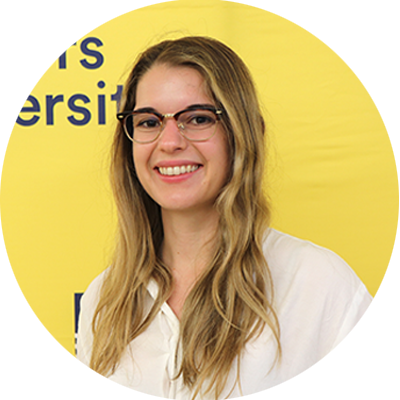
Georgia Middleton
Bachelor of Health Sciences
“My experience in the Health Promotion specialisation has been thoroughly enjoyable. The support provided by the coordinating staff was exceptional.”
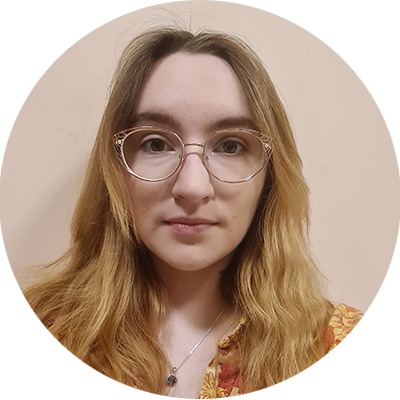
Tegan Jefferies
Bachelor of Health Sciences (Health Promotion)
“I love studying at Flinders due to the peaceful ambience surrounding the campus and how supportive both peers and staff are in terms of academics or general inquiries.”
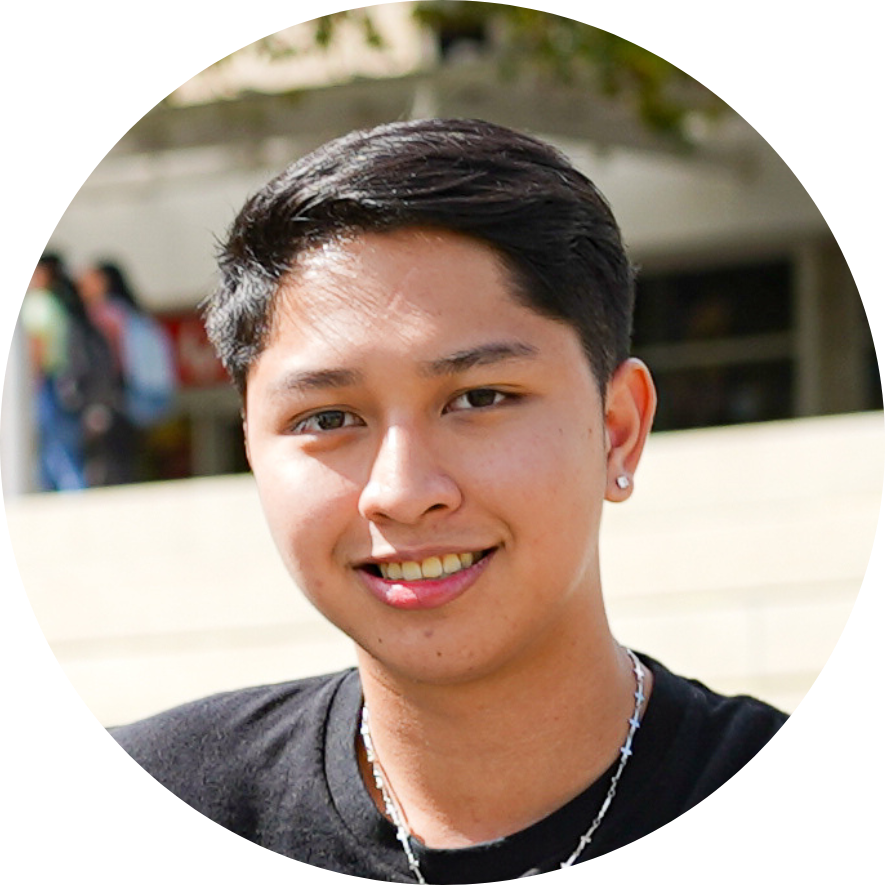
Jean Mark Noceto
Bachelor of Health Sciences (Therapy Studies)
“I love studying at Flinders due to the peaceful ambience surrounding the campus and how supportive both peers and staff are in terms of academics or general inquiries.”

Jean Mark Noceto
Bachelor of Health Sciences (Therapy Studies)
“The core topics of the degree were foundational for preparing me to work as a health practitioner and complemented the topics offered in my chosen specialisation."

Georgia Middleton
Bachelor of Health Sciences
“My experience in the Health Promotion specialisation has been thoroughly enjoyable. The support provided by the coordinating staff was exceptional.”

Tegan Jefferies
Bachelor of Health Sciences (Health Promotion)
Need support?
International Student Services (ISS) is the first point of contact for international student support. The university also offers everything from cultural, health, and wellbeing services, to academic support.
Campus tours
Take a virtual tour of our campuses, guided by your fellow international students.
FUSA
Flinders University Student Association (FUSA) is the heart of the Flinders Experience. FUSA is where you'll find out about events, club memberships, and extracurricular activities.
Accommodation.
Adelaide has many accommodation options for international students. You can choose to live on campus, at our city accommodation provider The Switch, or in rental accommodation.
Flinders offers a vibrant, fun, supportive uni experience you’ll remember for a lifetime.
Need support?
From cultural, health and wellbeing services, to study and financial support, enrolment advice and more, we’re here to help.
Student clubs
Flinders University Student Association (FUSA) is the heart of the Flinders Experience. FUSA is where you’ll find out about events, club memberships and extracurricular activities.
Campus facilities
Flinders’ campuses are hubs of activity, with retail and food outlets, library spaces, study and chill spaces and more.
Learn from the experts.
Our incredible teaching and professional staff are experts in their fields and well-connected to the industry.
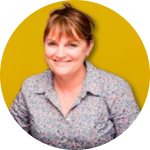
Academic Lead
Dr Louisa Matwiejczyk
Louisa is a Community Nutritionist-Dietitian with over 20 years’ experience supporting families, children and community services. Her interests include early childhood nutrition, food policy and translating evidence into practice. She’s passionate about empowering future health professionals through collaborative, prevention-focused approaches.
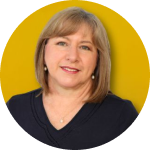
Course Coordinator
Jane Harford
Jane has a background as a registered nurse and has completed studies in health administration, public policy, economics and public health. She has also worked in health services, spending some time working in a range of roles in government and at universities.
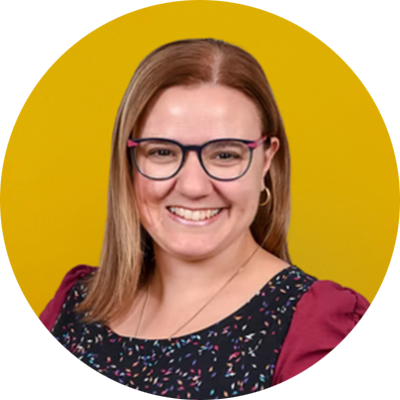
Honours Course Coordinator
Dr Fiona Rillotta
Fiona is a social scientist, who has worked as an academic since 2011. She has worked with people with disabilities in various community settings since 2001. Her research is associated with inclusion of people with intellectual disability at university; and enhancing social networks, quality of life, and community inclusion of people with intellectual disability.
Gain real world experience.
This degree provides you with the option to undertake a work placement, preparing you for the workforce and giving you the opportunity to build industry connections and develop practical skills, ensuring you are career ready.
In your final year, the health work internship offers the opportunity to apply what you have learned in a real world care environment. You can work with the coordinator to identify and organisation and placement that aligns with your interests gain real world experience to launch your career.
In your final year, the Health Work Internship offers the opportunity to observe a career of interest or participate in a short-term internship overseas in a low-income country, working within local health systems. This hands-on experience exposes you to global health challenges and fosters cross-cultural learning.
Our overseas internships, such as those in Fiji, include immersive experiences where students live in villages and work on local health initiatives. The internships begin with a study tour in Suva, in collaboration with local universities and health experts. These opportunities are supported by New Colombo Plan scholarships and OS-HELP loans.
In your final year, the Health Work Internship offers the opportunity to observe a career of interest or participate in a short-term internship overseas in a low-income country, working within local health systems. This hands-on experience exposes you to global health challenges and fosters cross-cultural learning.
Our overseas internships, such as those in Fiji, include immersive experiences where students live in villages and work on local health initiatives. The internships begin with a study tour in Suva, in collaboration with local universities and health experts.
This is dependent on visa eligibility.
Let’s get started on your Flinders’ experience.
We know not everyone begins uni the same way, so we offer a variety of pathways into Flinders.
Use the dropdown to tell us a bit about you.
Alternative pathways
UniTEST
If you’re in Year 12, taking the free uniTEST can help boost your chances of getting into Flinders.
Research Project B Pathway
Strong results in your Research Project B subject along with your Year 12 results can be considered for entry.
Year 12 Grades Entry
By using three of your best Year 12 grades, you can also gain a place in your course of choice.
School Recommendation Program
Your school’s recommendation about your academic performance may be considered as part of your admission.
If you started uni but didn't finish, you may be able to gain entry into Flinders with a higher education transfer.
Higher education transfer
If you’re studying at another university, you may be able to transfer to Flinders based on your Yr 12 results, current GPA or other factors.
If you've had TAFE or VET training, you may be able to continue your study with Flinders.
TAFElink
Even if you didn’t finish high school (Year 12), you may be able to study at Flinders through your TAFE/VET qualification.
Dual offer pathways
You may be able to complete a TAFE SA course and have guaranteed entry into Flinders.
Credit transfer
The TAFE/VET stud you’ve already done may be able to be used as credit towards a Flinders’ course.
No ATAR? No worries. If you've got work or life experience, there are pathways into Flinders.
Flinders Foundation Studies
The Foundation Studies Program is free and guarantees entry to a range of degrees.
Skills for Tertiary Admissions Test (STAT)
The STAT is a 2-hour multiple choice test that assesses your abilities.
Year 12 qualifications
If you completed Year 12 more than two years ago you can still use your results to apply.
Apply via SATAC
Concerned about your ATAR? If it doesn't meet the course requirement, or if you don't receive one, we offer alternative pathways to admission. Contact us to discuss your options—we're here to help.
Increase your chances of studying at Flinders as a rural and remote resident.
An annual sub quota is available for applicants from rural and remote areas. To be considered for the rural and remote subquota you must submit a Statutory Declaration to SATAC within 10 working days of your application confirming you’ve lived in a non-metropolitan area of Australia (Remoteness Classifications RA2–RA5) for:
* At least 5 consecutive years, or
* 10 cumulative years, from birth (i.e. during any period of your life)
Eligibility is based on your primary residential address.
Applicants can check their eligibility in accordance with the definition above using the Australian Government's Health Workforce Locator. Enter the address you wish to search for using the 'ASGS Remoteness Area' '2021'. As part of a transition year for 2026 entry, applicants can also be assessed against the ‘ASGS Remoteness Area’ ‘2016’ if not eligible under the 2021 layer. For 2027 entry, applicants will only be assessed using the 'ASGS Remoteness Area' '2021' layer.
- Entry requirements
- Application options
If you don’t meet our English language entry requirements and need to improve your English language proficiency, you can do so through Flinders University Academy – or our approved English Language Instruction Course for Overseas Students (ELICOS) providers.
This means that you can attend the required English language tuition at approved ELICOS providers and gain direct entry into university without an IELTS or TOEFL test.
If you don’t meet our academic entry requirements, you can still gain entry to Flinders University through Flinders University Academy. With a range of diplomas, foundation and English language courses, students can find a direct pathway into the destination degree of their choice.
How to apply
Select your course.
Check entry requirements.
Check your eligibility for credit.
Obtain certified documents.
Submit your application and documents.
Application options.
Apply online
Follow up our step-by-step guide to help you with your application to study at Flinders.
Find an agent
Our registered education agents around the world understand the university system and will guide you through the application process.
Contact us
Get in touch with our team to discuss your preferences, career options, pathways, and course and entry requirements. We are here to ensure you have everything you need to choose the right degree for you.
Don't meet academic requirements? Don't worry. We'll help you get there.
Preparatory courses
If you lack required English proficiency, improve through Flinders University Academy or approved ELICOS providers for direct university entry without IELTS/TOEFL tests.
Flinders University Academy
If you do not meet entry requirements for your desired degree, Flinders University Academy will provide you with a direct pathway into the destination degree of your choice.
Continue your study.
The Bachelor of Health Sciences is a flexible degree that can be a pathway to postgraduate study in areas like Medicine, Public Health, and Allied Health. Up to four places are reserved in selected master's programs (Physiotherapy, Occupational Therapy, Speech Pathology) for Flinders Health Sciences or Medical Science graduates.
Frequently asked questions.
Over the years, many questions have been asked by students before. For the quickest answers view our frequently asked questions or browse the full list @ Ask Flinders.
Health Care and Social Assistance is Australia’s largest industry and is projected to have strong employment growth through to May 2023 (Jobs and Skills Australia).
From treating patients in health clinics, providing preventative self-care, influencing health care policy in government agencies or undertaking life-changing research, the opportunities are limitless.
You will graduate either with a Health Sciences degree and a specialisation or major, or you will graduate with a broad Health Sciences degree. This depends on whether you choose to pursue a specialisation or major or whether you build your own degree.
Part-time study has a duration of eight years.
While study is only available in-person at our Bedford Park campus, many of the topics are available to study online.
In your final year, the Health Work Internship placement allows you to observe a career of interest or undertake a short-term internship overseas in a low-income country, working within local health systems. This experience provides invaluable exposure to global health challenges and cross-cultural learning outcomes.
Our overseas internships, such as those in Fiji, include immersive experiences where students live in villages and collaborate on local health initiatives. These internships begin with a study tour in Suva, conducted in partnership with the local university and health experts. They are supported by New Colombo Plan scholarships and OS-HELP loans.
The Bachelor of Medical Sciences emphasises biomedical and benchtop sciences, concentrating on the internal workings of the body.
The Bachelor of Health Sciences provides a broad understanding of both the external and internal aspects of the body. This program supports further postgraduate studies in various health professions and prepares you for careers in people-focused areas within the health and social care sectors.
If you are interested in Physiotherapy, you can apply for the Bachelor of Health Sciences/Master of Physiotherapy.
If you are interested in Occupational Therapy, you can apply for the Bachelor of Health Sciences/Master of Occupational Therapy.
If you did not gain a high enough entry score for the Bachelor of Health Sciences/Master of Physiotherapy, you can undertake either a Bachelor of Health Sciences (Therapy Studies) or a Bachelor of Exercise Science (with an allied health specialisation) and on completion be eligible for entry into the Master of Physiotherapy.
If you did not gain a high enough entry score for the Bachelor of Health Sciences/Master of Occupational Therapy, you can undertake a Bachelor of Health Sciences (Therapy Studies) and on completion, be eligible for entry into the Master of Occupational Therapy.
Please note, completion of these alternate degrees does not guarantee entry into the double degree or Masters programs and entry is competitive based on grade point average (GPA).
There is a range of alternative ways to gain entry to most undergraduate courses besides meeting the minimum required ATAR. Details of other pathways can be found at flinders.edu.au/study/pathways
These include:
- Doing the uniTEST, an aptitude test designed to assess the generic reasoning and thinking skills you need to be successful in university-level studies. As a year 12 student, you can use uniTEST results in combination with your ATAR to increase your opportunity to gain entry into any of our courses, with the exception of the Bachelor of Clinical Science/Doctor of Medicine.
- You can apply through SATAC to sit the Skills for Tertiary Admissions Test (STAT), held in June.
- You can also consider applying for courses with lower requirements, as many courses will allow you to transfer once you have completed a specified amount of the course. This is done through Flinderslink. If you accept an offer at another university and perform well, you can use your grade point average (GPA) to transfer to Flinders University. You may even be eligible for credit.
- Aboriginal and Torres Strait Islander applicants can gain admission to Flinders University through the Indigenous Admissions Scheme.
- Applications are completed via SATAC
- Visit: satac.edu.au
The table below shows ATAR and Selection Rank data for students offered a place wholly or partly on the basis of ATAR commencing in Semester 1, 2025. It is limited to applicants that have recently completed secondary education (within the last two years). Data may reflect multiple courses available within a suite of courses.
Notes:
<5 – less than 5 ATAR based offers made
N/A – This course uses additional selection criteria and therefore Selection Rank is not published
| ATAR-based offers only across all offer rounds | ATAR - Excluding adjustment factors | Selection Rank - ATAR plus any adjustment factors |
|---|---|---|
| Highest rank to receive an offer | 95.20 | 99.95 |
| Median rank to receive an offer | 76.17 | 80.42 |
| Lowest rank to receive an offer | 57.75 | 61.00 |
The table below gives an indication of the likely peer cohort for new students in this course. It provides data on students who commenced study in this course in Semester 1, 2025 including those admitted through all offer rounds and international students studying in Australia. Applicant background groupings are based on educational background, not basis of admission. Data may reflect multiple courses available within a suite of courses.
Notes:
<5 – the number of students is less than 5
N/P – Not published: the number is hidden to prevent calculation of numbers in cells with less than 5 students
| Applicant background (Semester 1, 2025) | Number of students | Percentage of all students |
|---|---|---|
| Higher education study (includes a bridging or enabling course) | 44 | 37% |
| Vocational education and training (VET) study | 5 | 4% |
| Work and life experience | <5 | <5 |
| Recent secondary education - Admitted solely on the basis of ATAR (regardless of whether this includes the consideration of adjustment factors such as equity or subject bonus points) | 28 | 24% |
| Recent secondary education - Admitted where both ATAR and additional criteria were considered (e.g. portfolio, audition, extra test) | <5 | <5 |
| Recent secondary education - Admitted on the basis of other criteria only and ATAR was not a factor (e.g. special consideration pathways) | 17 | 14% |
| International Students | 18 | 15% |
| All students | 118 | 100% |
Frequently asked questions.
Get in touch with us to discuss your preferences, career options, pathways and course and entry requirements. We are here to ensure you have everything you need to choose the right degree for you.
The type of documents you will need for your international application depends on what course you are applying for and which country you are a citizen of. Course requirements are stated on each course webpage. Examples of documentation you might expect to provide for your international application include a copy of personal identification, academic transcripts or a resume.
Once you have received your Confirmation of Enrolment (CoE) letter from Flinders University, you should apply for your visa as soon as possible as visa processing times can vary. You will receive your CoE letter after you have applied to study at Flinders, accepted your offer and paid the semester tuition fee.
No. Part-time study is currently not available for international students due to visa conditions.
No. Online study is currently not available for international students due to visa conditions.
If you don’t meet our English language or academic entry requirements, you can still gain entry to Flinders University through our on-campus pathway provider Flinders University Academy. Alternatively, you can improve your English language proficiency through our approved English Language Instruction Course for Overseas Students (ELICOS) providers.
You can apply to study as an international student directly through Flinders University or an authorised agent in your country.
If you are from one of the countries listed here, you are required to apply via an education agent. If you reside onshore in Australia, you will not require an agent even if you are from the countries listed above.
Yes. As a student visa (subclass 500) holder, you and your dependents (family members) can work up to 48 hours a fortnight when your course of study is in session. If you have started a master degree by research or doctoral degree, this rule does not apply to you and working hours are not restricted.
Our dedicated International Student Services (ISS) team provide a range of programs supporting your enrolment, study and social life, as well as a referral service to facilities on campus and within the local community.
![]()
Sturt Rd, Bedford Park
South Australia 5042
South Australia | Northern Territory
Global | Online
CRICOS Provider: 00114A TEQSA Provider ID: PRV12097 TEQSA category: Australian University








